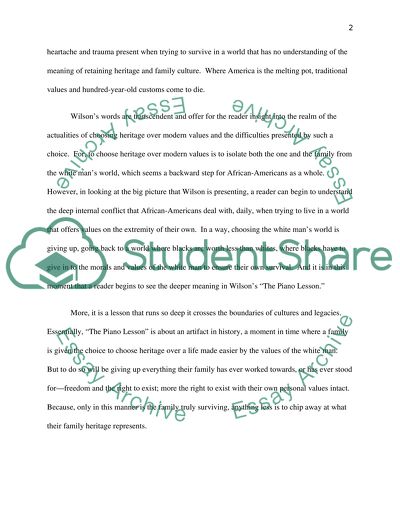Cite this document
(“The Piano Lesson by August Wilson. Expliring the Dischotomy of Essay”, n.d.)
Retrieved from https://studentshare.org/literature/1449792-the-piano-lesson-by-august-wilson-expliring-the-dischotomy-of-traditional-african-american-valuesversus-christianity-and-american-customs
Retrieved from https://studentshare.org/literature/1449792-the-piano-lesson-by-august-wilson-expliring-the-dischotomy-of-traditional-african-american-valuesversus-christianity-and-american-customs
(The Piano Lesson by August Wilson. Expliring the Dischotomy of Essay)
https://studentshare.org/literature/1449792-the-piano-lesson-by-august-wilson-expliring-the-dischotomy-of-traditional-african-american-valuesversus-christianity-and-american-customs.
https://studentshare.org/literature/1449792-the-piano-lesson-by-august-wilson-expliring-the-dischotomy-of-traditional-african-american-valuesversus-christianity-and-american-customs.
“The Piano Lesson by August Wilson. Expliring the Dischotomy of Essay”, n.d. https://studentshare.org/literature/1449792-the-piano-lesson-by-august-wilson-expliring-the-dischotomy-of-traditional-african-american-valuesversus-christianity-and-american-customs.


